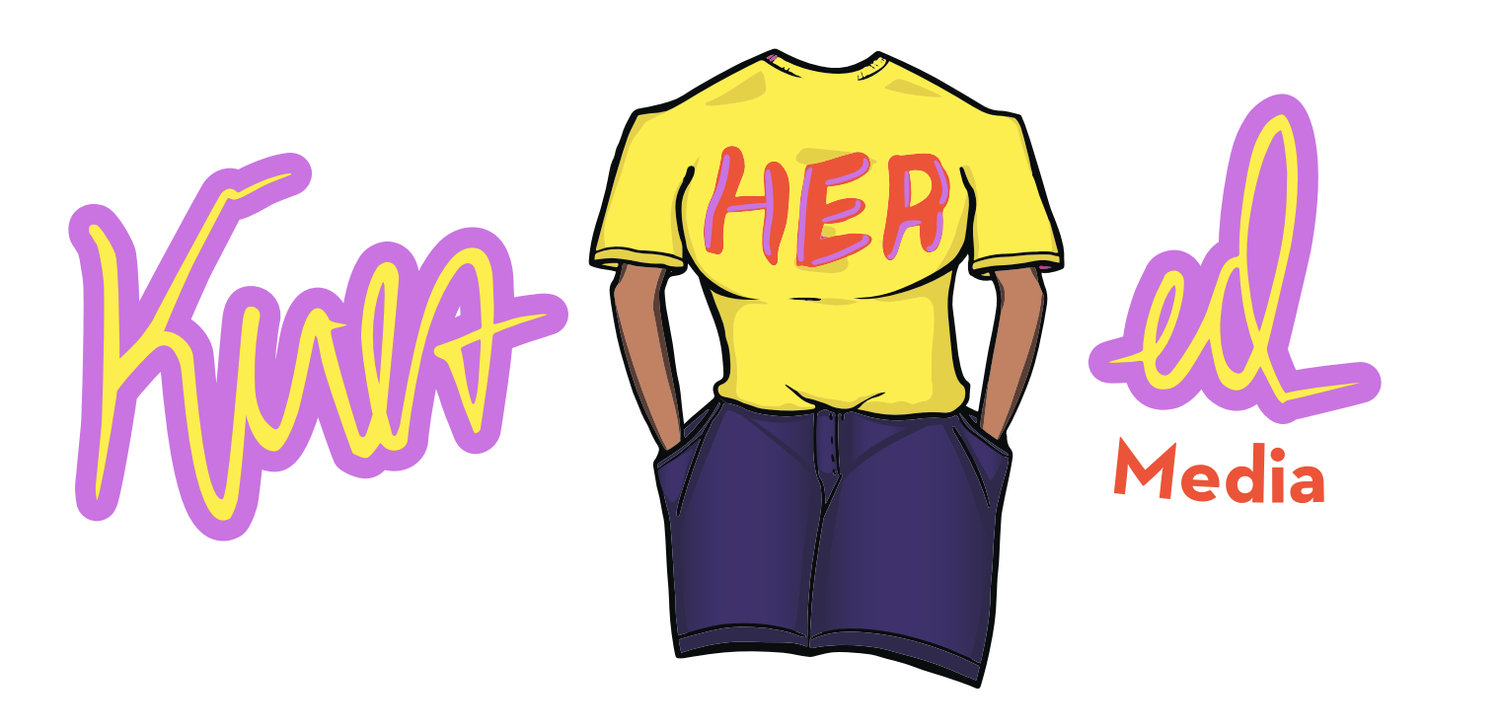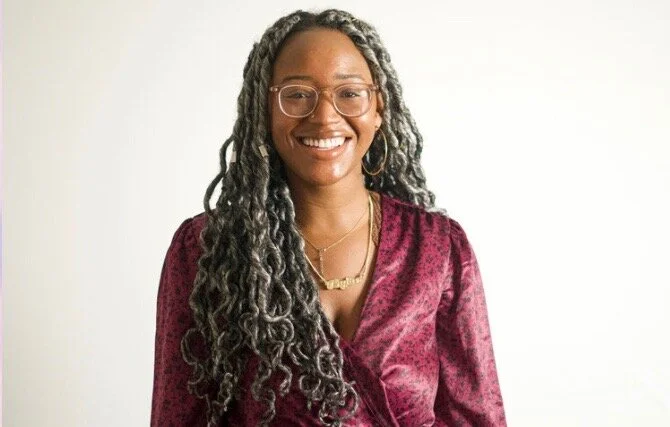Real Plant Girl Shit: On Taylor Crumpton, Media and Southern Rap Critique
Taylor Crumpton is not your average Black woman, queer maven or journalist. She’s the perfect auntie aesthetic mix of Dalla$ southern comfort, Harvard complex language and Oakland, CA around the way girl-the one that stays in Barnes and Noble, collects plants that swirl and curl across her apartment (they hugged her in our interview) and meditates in the vein of Sacred Woman by Queen Afua, but will hit you up late night for a gram of street herb and makes sure you pass the bottle at the house party.
She’s a hidden treasure, purveyor of Black Twitter journalism and a critically curious author of thought.
Officially entering the “Left my 9-5 and now freelancing on faith with a few dollars, talent, cultural capital and a rent bill still due” phase most journalists work their whole life to comfortably achieve, Taylor approaches it with a state of calm astonishment.
“You know, look baby look-My friends told me that this is something I’ve been working towards for 4 years because I freelanced from my senior year of undergrad into grad school into my professional job and beyond,” Taylor told me over Zoom recently. “So for the past 4 years, I never knew what writing by itself was like. I often glorified it and would very much compare myself to counterparts in NY and LA like I wish I could do what you do-it just so happens I did it when a worldwide pandemic happened.”
A former youth social worker, Taylor stressed the importance of saving a nest egg, knowing when to go and not being the prettiest person outside, as her auntie told her.
“So I knew I wanted to leave my job in September, so I hustled the first 5 months of this year so I could not worry as much (still a tad worried because nest eggs come and go really quickly),” said Taylor, “but I tell you to this day Natasha, if my savings were to run low, I have no shame in going back to a nonprofit-we live in a capitalistic society, so do what you have to until you can make that leap of faith.
“The writing/entertainment world is tailored for a select few to get by, but I’m so happy to wake up and write every day and everyone can see that.”
With enviable and culturally recognized bylines under her belt such as Zora, Paper, Revolt, Nylon, Teen Vogue and more, Taylor is transparent in how she navigates these spaces and her bewilderment when her work is publicly engaged with and praised.
Taylor Crumpton cartoon artwork by artist @CallMeStoni.
“Till this day, I still operate under the guise that no one reads my writing,” Taylor earnestly admits. “So I’m genuinely surprised when people say they read and like my work cause I’m like oh shit, wow-I’m just at my desk casually at the crack of dawn in my headscarf with thesaurus.com up looking at another way to say lived experience or something.I didn’t really claim this as my own until a year ago, when I saw my first printed piece in Marie Claire magazine.”
Taylor went on to give an unbeknownst Zoom testimony on how the Universe showed up in the worst week of her life with custom surprises-her name in print and a Jack Jones Literary Critic of Color nod. 2019 was her Maya Angelou “Still I Rise” year.
Despite the media industry’s incessant changes on a weird pillar of praising diversity and wanting marginalized voices but still hiring tone deaf White content creators to report on Black issues they are nonplussed on, Taylor’s work has always reflected the urgency of amplifying the voices and unique experiences of Black women and girls in relation to race, reproductive justice, feminism, sexuality and more in a cavillous lens.
Taylor’s latest byline for Refinery29’s new Pride series.
She is very apt in not accepting DM’s (‘The only reason why the DMs are closed is because it became an unsolicited penis parade and I was about to start tracking IP addresses”), but is willing to offer tangible advice about humble beginnings and how to build your brand and writing skills using free resources and gusto.
“I got my first byline by using my cute Leo confidence to @ the publication editor on Twitter and ask can I pitch to her,” revealed Taylor. “I was so excited to have my first Glamour byline that I wasn’t paid-it was a national byline, but I wasn’t paid. Always get paid for your labor and take the student out of your name-you’re a journalist.Also, we know the freelance climate and how publications have been cut-build your own platform and self publish-do the research.”
Boasting a massive Twitter following of 15.8K, Taylor is no stranger to adversity and multifarious dialogue, including some transparent tweets about Jon Caramanica, the NYT Music critic. Taylor hastily accused Jon of stealing a pitch for a music story she wanted to write, which resulted in a phone call discussing the depths of hip hop, theft of intellectual property and the nature of media. She was very lucent in her conversation about vetting the situation before going the sometimes messy, accusatory route and also recognizing her privilege in being able to speak to world renowned editors on subjects like plagiarism, hip hop and the state of media.
Southern hip hop and rap is one of Taylor’s top love languages. She speaks highly and educated on it, like praising your favorite Grandma’s peach cobbler on Sundays. While in the midst of writing a book proposal on the niche brand of gold grille, in the trenches, Georgia peach and Saturday barbecue down South music culture (surprise!), Taylor is adamant on why her obsession with keeping the treasure of the South is a vital nod towards the innovation and inspiration for the music industry.
“So I think for me, it’s really important when we're talking about hip hop culture and country rap of the South because at the 1995 Source Awards when Andre’ 3000 famously said ‘The South got something to say,’nobody thought that the #1 song in the world would be from a WOMAN rapper in Houston, TX,” said Taylor.
“Trina even rapped about how Southern rappers were slow and country; we couldn’t articulate and tell stories like East Coast rappers could, we couldn’t match speeds or tempo,” lamented Taylor. “So we went and recreated our own genre. The good thing about Southern hip hop is that we have so many traditions in the region. We can talk about how ATL has changed the whole sound of contemporary rap...A lot of the coverage I’ve seen on Meg hasn’t looked at how historical she is in this current moment. That’s why I ride so hard for the South because it’s contributions are overdue to give it flowers and right now, the South is running hip hop.”
Besides giving the South its flowers, Taylor is also wanting to see more mentorship for journalists of color in the digital age outside of formal organizations like National Association of Black Journalists (NABJ) and others. Mentorship in the age of online media is something that is severely underrepresented as everyone is looking for their next big opus, but Taylor believes in the power of lifting as you climb.
“I continue to be a lifelong learner in this space, but there are moments where I wish I had a more seasoned veteran to assist me and give me the game. If I would’ve had a mentor, the Jon Caramanica experience could’ve been handled a lot differently.I think the selectiveness of the distribution of information is a disservice to the industry as a whole.”
Black women are intersectional-complex, nuanced and vibrant wearer of many hats-often by necessity but sometimes by choice. Besides not erasing her queerness (“ I don’t have to explain any parts of my identity to you; but there are different ways we can display the strength of our identities and how they shape our writing”), Miss Crumpton is a regular degular girl around the way girl who has a simple aesthetic.
“I love cooking,” gushed Taylor. “Cooking is something that was passed down from my grandmother to my Mama {sic} who passed, God rest her soul. I have a tattoo of her on my right forearm, it’s a Black cowgirl.”
“I think a lot of times think that from social media, my roster is popping, all these followers, yada yada yada when in reality I’m in my house with my plants, in community with people, on FaceTime with friends, making margaritas, smoking weed on the couch, journaling, reading, meditating and praying at my altar. I’m very happy to be a Black woman from the South, I don’t wanna be anything else.
I love Texas so much that it’s tattooed on my ass so I can literally tell people to kiss my Texas ass. I’m also interested in the way we heal ourselves (Black witches, brujhas, chamins, West African traditions hidden in plain sight). I love it.”
Taylor “Thee Hot Girl Journalist/Shea Butter Taylor” Crumpton is a bad media bitch with the educated, fly and queer cousin aesthetic we long for. Her sharp, pervasive wit and sage/sweet persona is what the world of media needs. She is a vital voice for Black marginalized voices and bodies and has her pulse on the zeitgeist of times Black women and girls are living in- boldly, unapologetically and with a sense of flair, hunamity, empathy and humor. When you mention her, you mention a woman that sits on the shoulders of giants and is bringing our experiences, our narratives and our spice dipped culture of Black women and girlhood along with her.
Taylor being fine as (literal) wine courtesy of Twitter.




